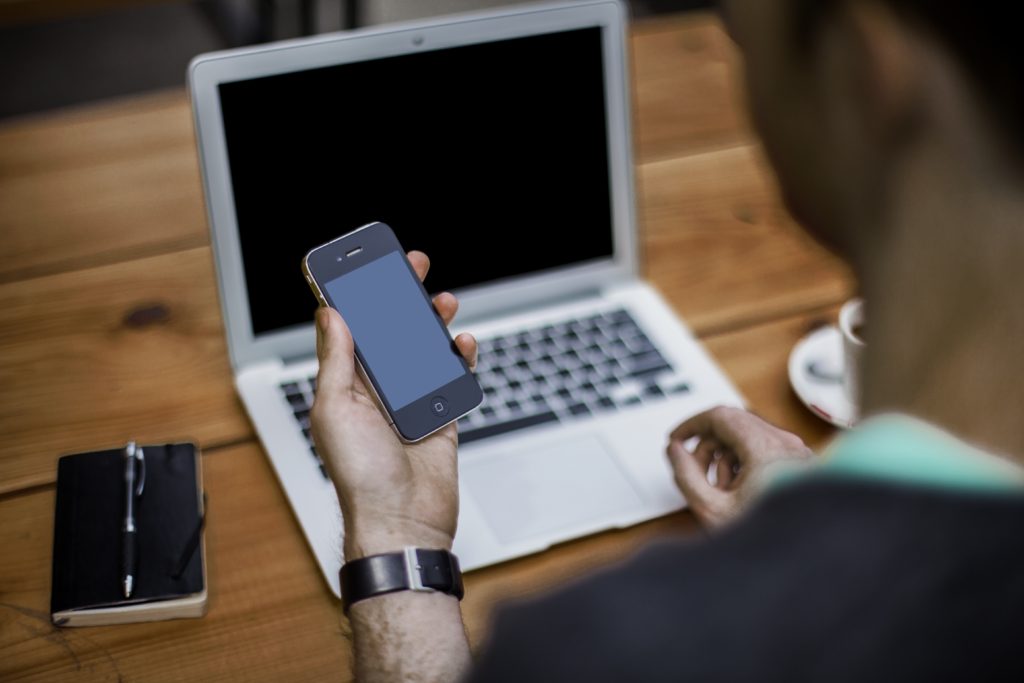Apr 29, 2016
Why “Always On” Needs To Be Turned Off
As greater mobility and near-constant connectivity continue to become more commonplace, it’s time to take a step back and turn off.
Improvements in mobile technology and the advent of social media have led to a dramatic increase in the time we spend on our devices. It has changed the way we interact with the world, our friends, and our work. While these improvements give us the impression that we are more productive and lead richer and deeper social lives, the reality is that constantly being connected has harmful effects on our mental health and work efficiency. In talking with business leaders all over the country, we are finding just how deep this double-edged sword cuts.
Always Working
There was a time not too long ago when, after the clock struck five on a Friday afternoon, the weekends were ours. But since email and the internet arrived on the scene, and more recently smartphones, that has changed. Bosses, managers, and employees alike are now always reachable, and expected to be, ready to tackle any quick task at any time. Today in the United States, more than 85% of men and 66% of women report working more than 40 hours a week. Our weeks are extending and our weekends are vanishing, as lamented Psych Central.
Connectivity certainly does have its benefits at the workplace, but only to a point. The speed at which important information can be shared means problems can be addressed more quickly than before. The problem, however, lies not being connected itself, but rather in how being connected consumes our attention.
Because we are now always attempting to multitask (which is impossible, by the way, according to Post Magazine), hopping between phone calls, emails, and meetings (somewhere between 70 and 95% of white-collar employees’ time in the office is spent on these tasks), our energy is split and shattered into unworkable fragments. Not surprisingly, this profoundly impacts our attention spans.
On top of this, with a constantly pinging inbox and a smartphone that constantly alerts us to new work emails even after work hours, our brains are having a hard time getting “downtime,” as the Harvard Business Review explains. While we may want to just power through and work all the time, our brains actually work better when we’ve had the chance to just “veg out.” In fact, taking some time for yourself disconnected from your phone and laptop might actually improve your physical health on top of your focus and productivity, according to another Review article.
Our Mental Health
Recent research by Microsoft has found that, on average, we can stay focused for only eight seconds before being distracted by something else that grabs our attention. For comparison, a goldfish’s attention span is nine seconds. That’s right, we’re losing to goldfish. That our attention spans averaged 12 seconds just 16 years ago in 2000 points to the impact constant connectivity and digital addiction are having on our brains.
Sadly, this is affecting not just our ability to focus, but also our mental health, particularly for young adults. The fear of missing out, or FOMO, is a very real affliction with very real consequences, fueled by social media and disproportionately occurring in people under 30, as Psychology Today observes. The more time someone spends on their smartphone, often in an attempt to alleviate those social anxieties, the more likely he or she is suffering from depression, according to WebMD. Heavy cell phone and computer use has also been linked to sleep disorders and stress, as PsychCentral observes, highlighting the crucial need to develop boundaries and set limitations on our daily dose of technology.
Turning Off, Tuning Out
Luckily, limiting our consumption can have significant impacts, as can prioritizing your daily tech-related workload. Using the morning to focus on creative or more involved projects takes advantage of your brain when it is most fresh and energetic. Leave less important duties — like emailing and Facebooking — for later in the day.
It is also important to take regular breaks from work, every 90 minutes or two hours. Even short breaks no longer than 10 minutes have regenerative effects that help reset our brains. Quick walks in a green spaces can be especially calming and even help improve attention. No matter how you do it, take time everyday to turn off and tune out from your digital spheres. Your mind (and your boss) will thank you for it.
Ken Sterling is the Chief Marketing Officer at BigSpeak Speakers’ bureau – the leading keynote and business speakers bureau in the world. He holds a Ph.D. from the University of California and an MBA from Babson College. Ken teaches Entrepreneurship, Marketing and Strategy at UC Santa Barbara. He is a serial entrepreneur, keynote speaker, business consultant and sales & marketing expert. For press interviews, contact marketing@bigspeak.com.
(Main image credit: Elajandro Escamilla/Unsplash)
Speaker
Tags

 Dr. Ken Sterling, MBA & Esq.
Dr. Ken Sterling, MBA & Esq.